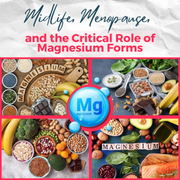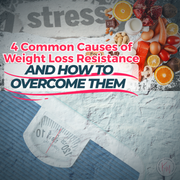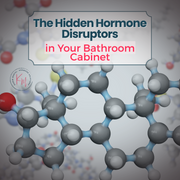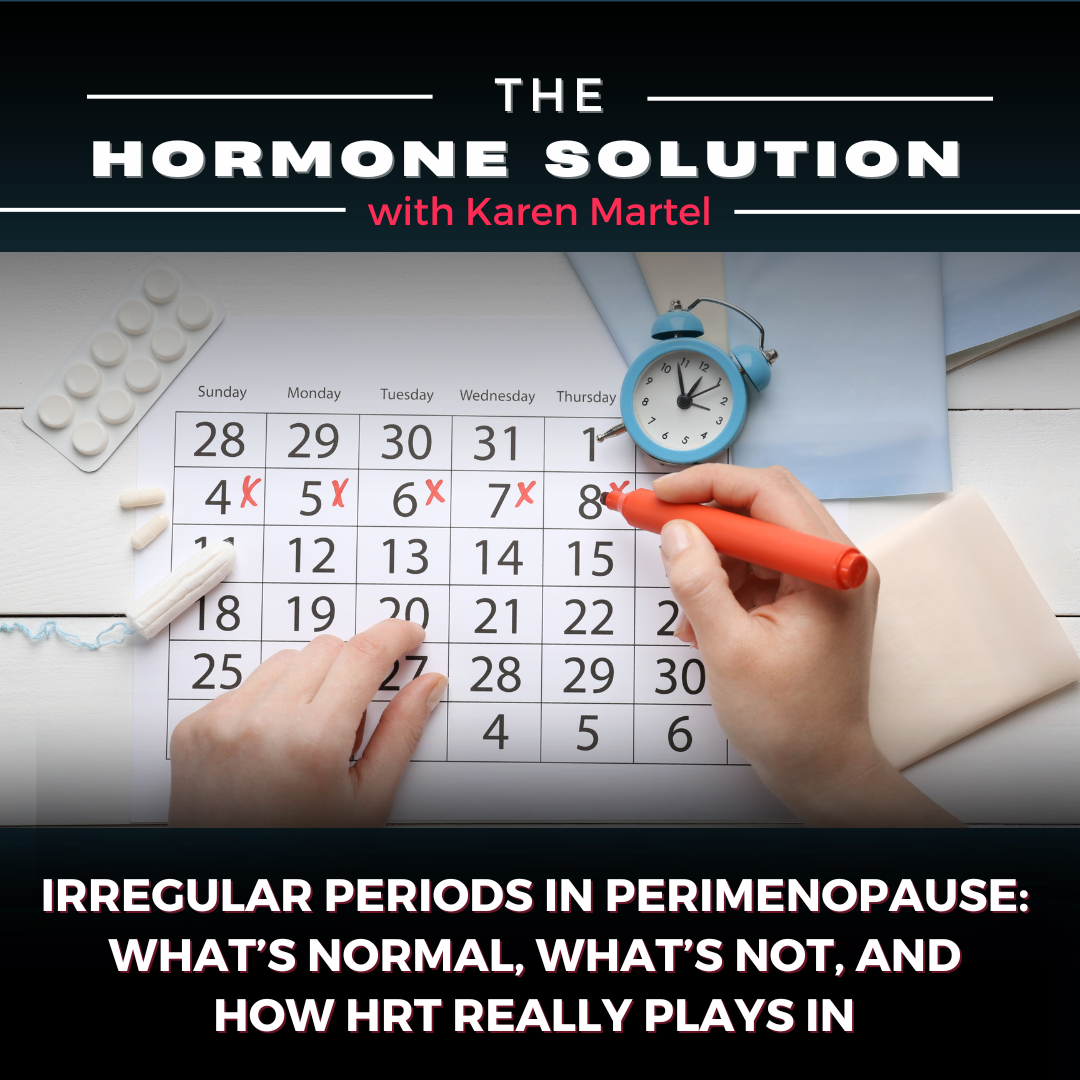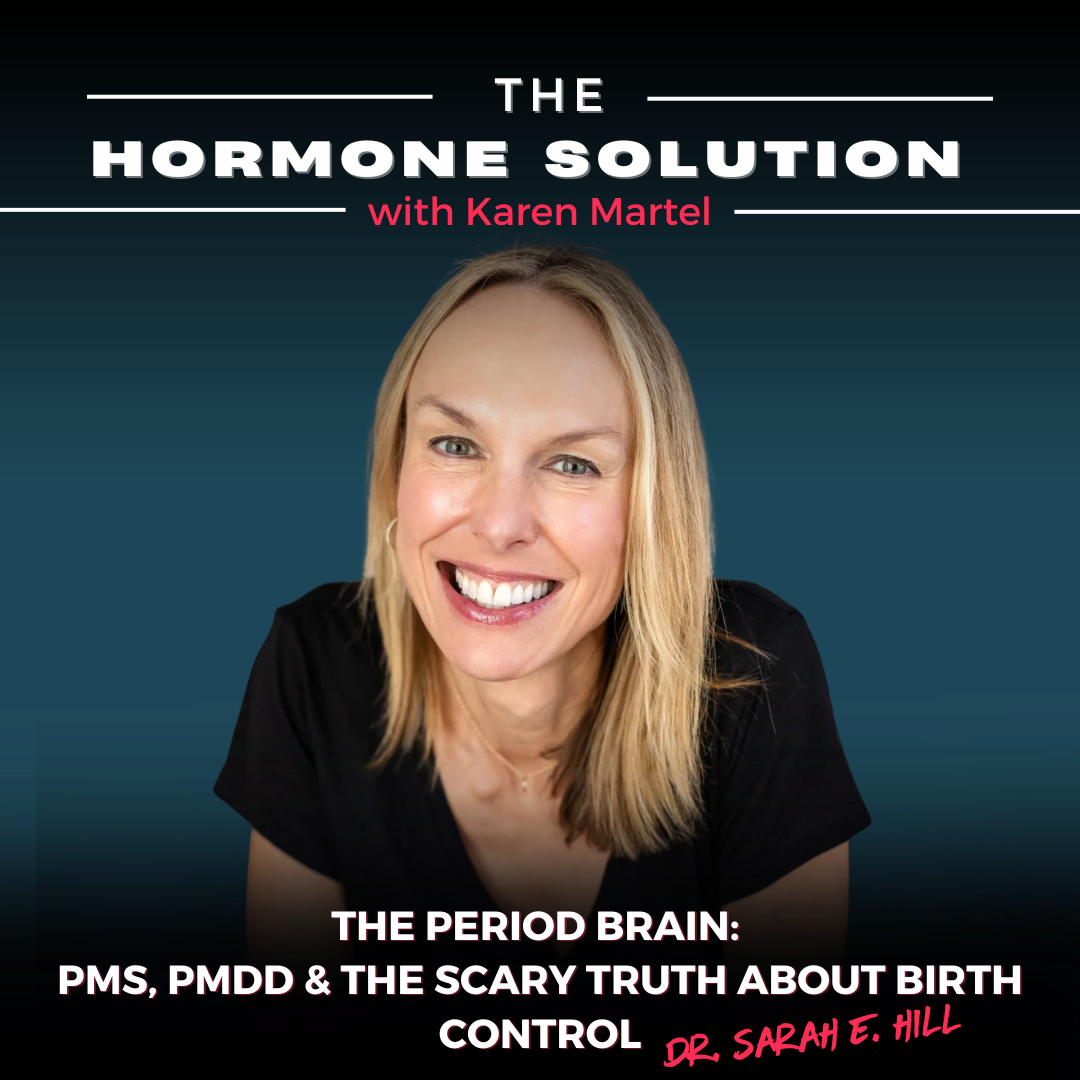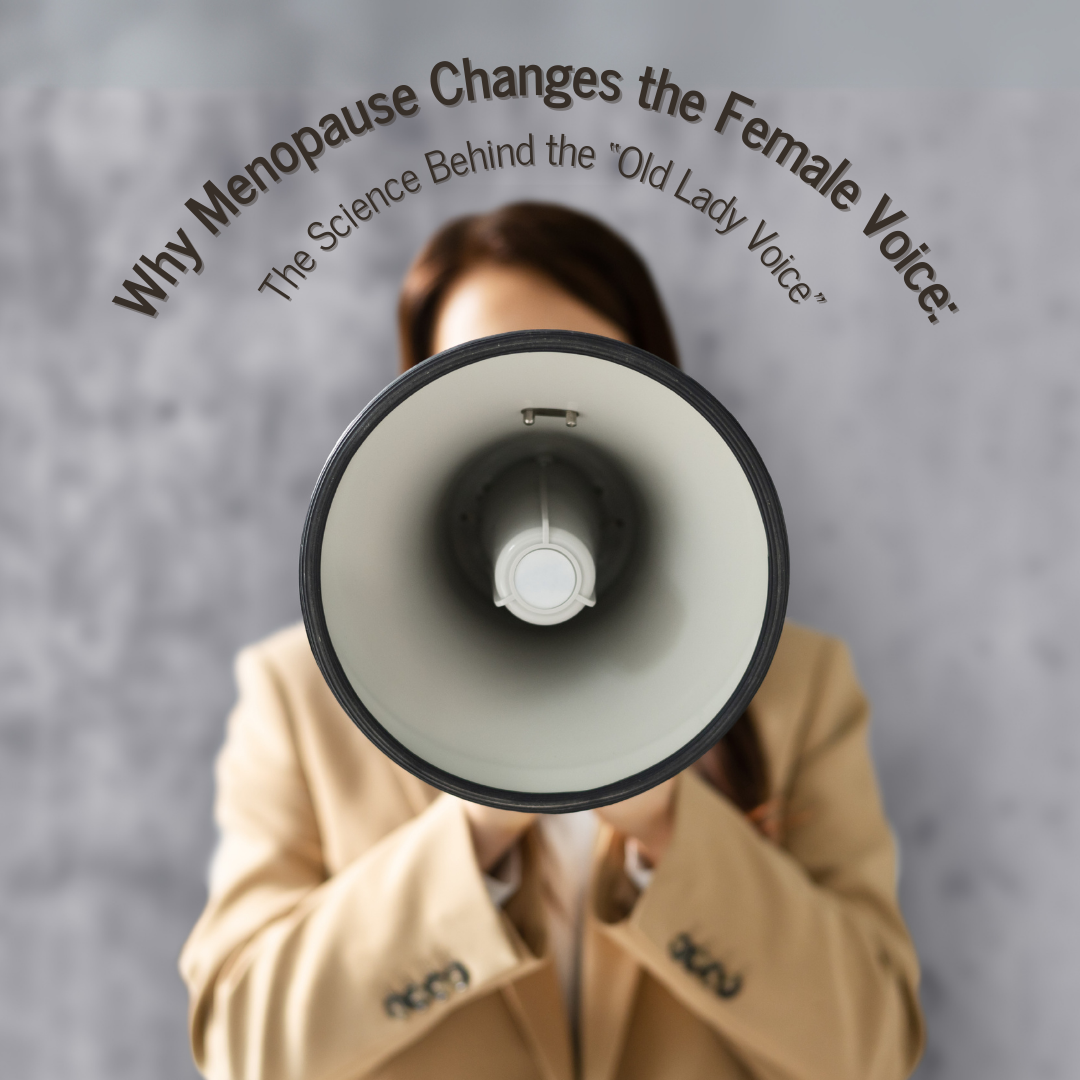
Why Menopause Changes the Female Voice: The Science Behind the “Old Lady Voice”
As women age, one noticeable—and often surprising—change is in their voice. That deeper, raspier, sometimes breathier sound, commonly known as the “old lady voice,” isn’t just about getting older. It’s closely tied to menopause and, more specifically, to the steep decline in estrogen. Estrogen isn’t just about reproductive health; it plays a direct role in maintaining the structure and function of the female voice.
The Role of Estrogen in the Voice
Estrogen receptors are present in the larynx, or voice box. This hormone helps maintain vocal cord elasticity, hydration of the mucosal tissues, healthy collagen structure, and muscle tone in the larynx. When estrogen levels fall during and after menopause, those tissues start to dry out, lose flexibility, and atrophy. This leads to thinner vocal folds, weaker vibration, and a less efficient voice overall.
What Actually Happens to the Voice?
When estrogen declines:
▪️ Pitch drops. The voice gets lower due to thinning and stiffening of the vocal cords.
▪️ Breathiness increases. Vocal folds don’t close as tightly, allowing more air to escape.
▪️ Raspiness appears. Mucosal dryness and reduced vibratory mass cause a rougher sound.
▪️ Range shrinks. With muscle atrophy and tissue loss, high notes become harder to reach.
▪️ Fatigue sets in. Weakened laryngeal muscles make speaking or singing more tiring.
Research Highlights
▪️ Hormone receptors in the vocal cords: Zamponi et al. (2021) confirm estrogen directly affects vocal tissues, making hormone loss a key factor in vocal aging.
▪️ Pitch changes post-menopause: Lindholm et al. (1997) showed that the mucosal thinning causes a noticeable drop in vocal pitch.
▪️ Hormonal imbalance shifts the tone: Awan (2006) noted that as estrogen drops and androgens rise, the voice begins to take on more masculine characteristics.
▪️ Atrophic changes in the larynx: D’haeseleer et al. (2009) documented that menopause leads to visible laryngeal atrophy, which explains much of the voice change.
▪️ Muscle loss affects control: Lenell et al. (2019) found that fast-twitch muscle fibers in the larynx decline after menopause, making it harder to control and sustain the voice.
▪️ Anatomy changes, too: Linville & Rens (2001) studied changes in bone density and vocal tract resonance that further affect tone and timbre.
Can Estrogen Replacement Help?
Some studies suggest that estrogen replacement therapy (ERT) can slow or reverse some vocal changes—especially in singers or professional voice users. Boulet & Oddens (1996) found that ERT improved vocal quality in postmenopausal women. But like all hormone treatments, it comes with risks and must be considered on an individual basis.
Bottom Line
The “old lady voice” isn’t just a cultural stereotype—it’s a physiological response to hormonal changes. Estrogen plays a key role in maintaining a youthful, flexible voice, and its decline after menopause reshapes the vocal landscape. Understanding the science helps normalize the change—and opens the door to proactive care, whether that’s HRT, vocal training, hydration strategies, or medical consultation.

Find Karen Martel on Apply Podcast
Karen Martel is a Certified Hormone Specialist and Transformational Nutrition Coach dedicated to empowering women through their health journeys.
As the host of the popular podcast The Hormone Solution, Karen tackles the complexities of hormonal health, weight loss resistance, and the challenges that come with perimenopause and menopause.
Her mission is to disrupt outdated narratives surrounding women's health, providing reliable information and practical solutions that help women reclaim their vitality.
Tune in to discover how to embrace life's stages while enhancing overall well-being.

